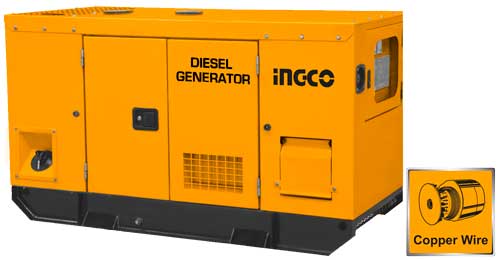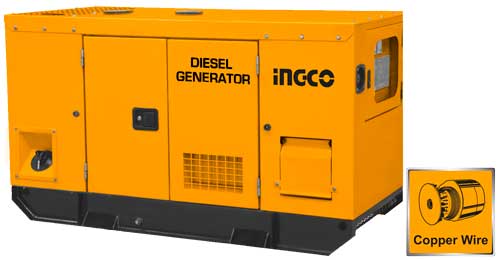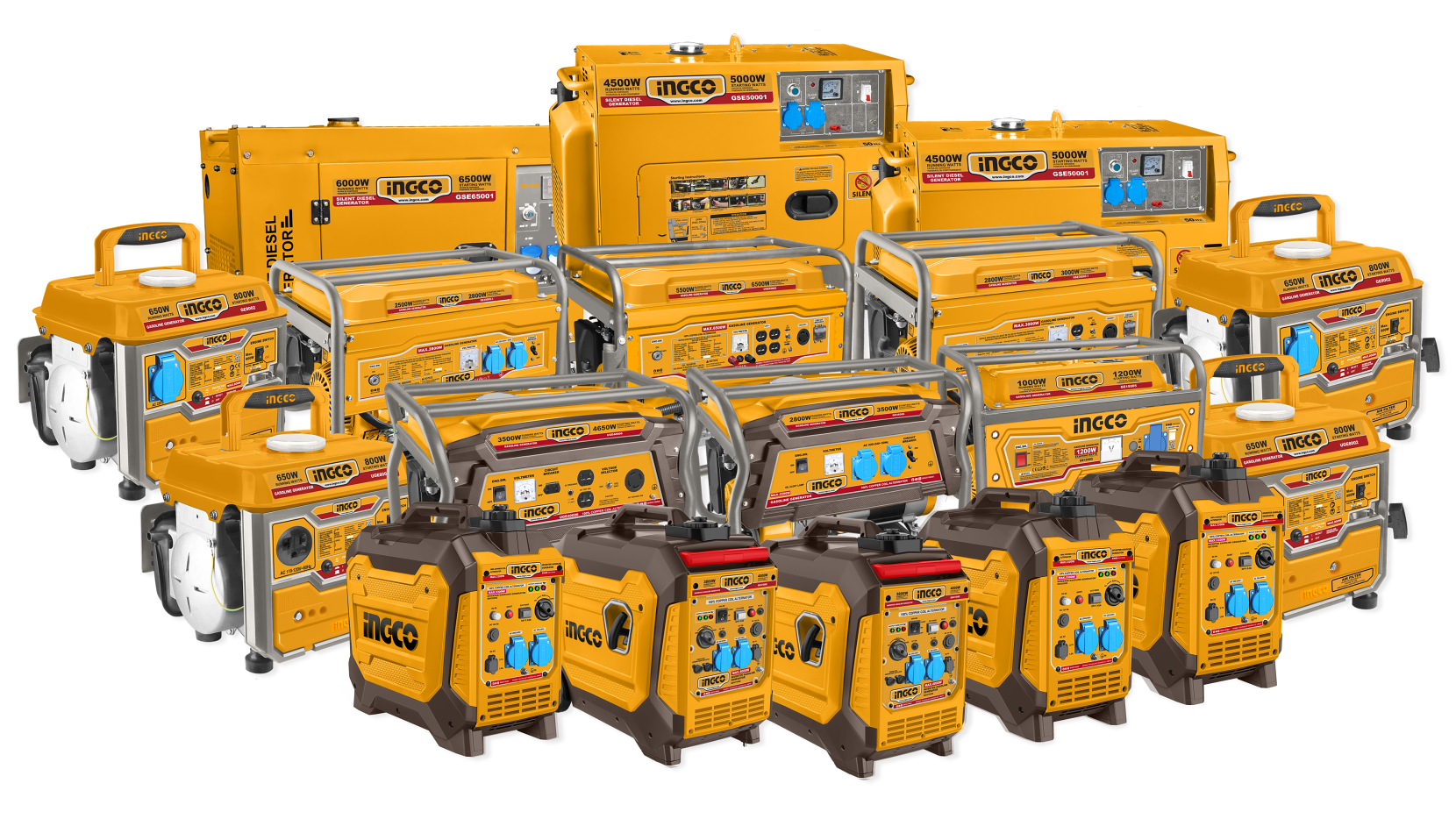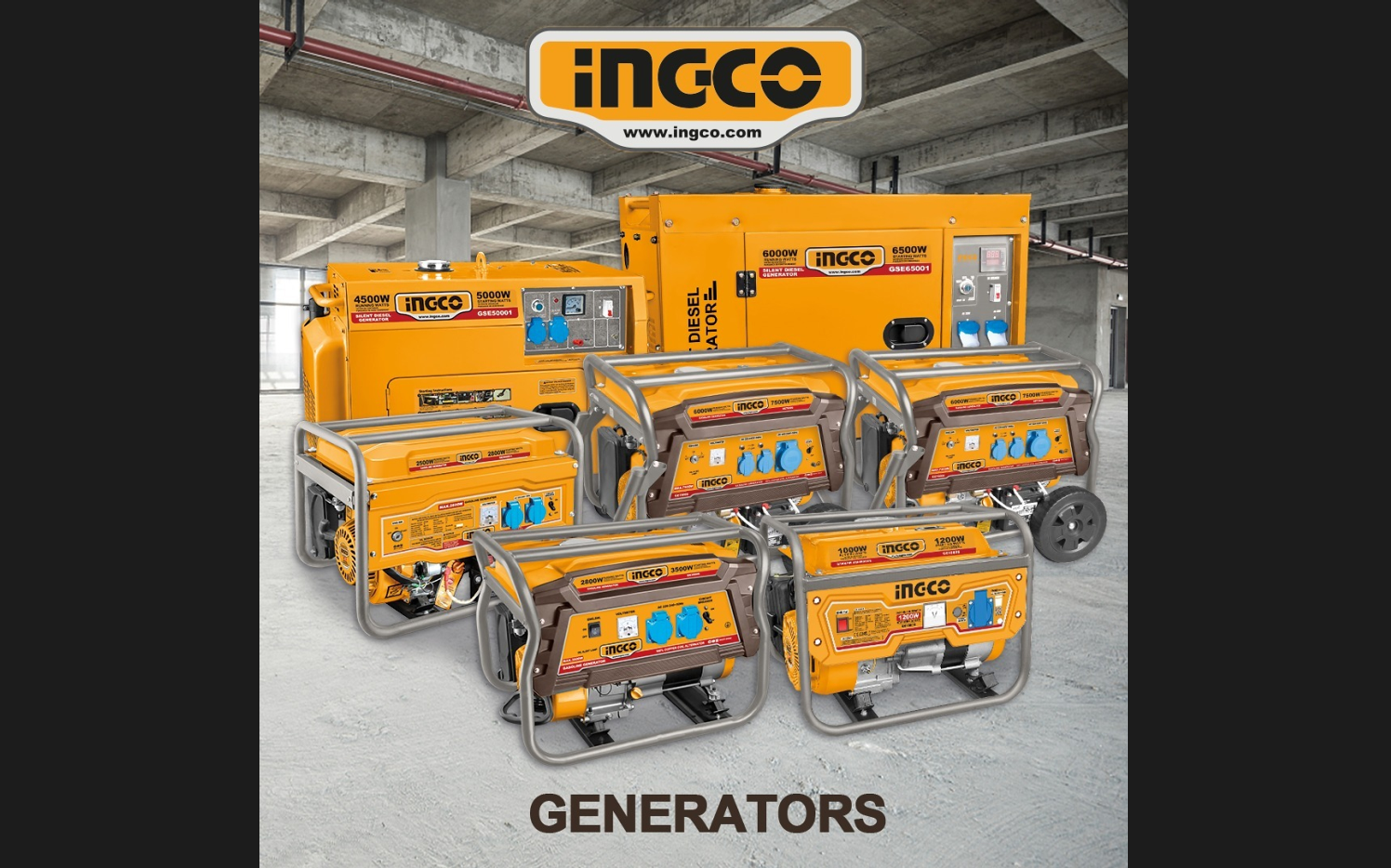Diesel vs Gasoline Generator: Pros, Cons, and Differences
.png)
When it comes to choosing a generator, understanding the differences between diesel vs gasoline generators is crucial. Both types have their unique advantages and disadvantages, and the right choice can depend on various factors. In this blog, we'll delve into what sets these two generator types apart, helping you make an informed decision for your power needs. Whether you're looking for a reliable backup power source or a portable solution for outdoor activities, knowing the key distinctions can make all the difference.
What Is a Diesel Generator?

Diesel generators are power generation units that run on diesel fuel. They are widely used in various applications, from industrial settings to residential backup power. Diesel engines ignite fuel through compression, which results in efficient combustion and robust power output.
Pros and Cons of a Diesel Generator
Pros:
- Fuel Efficiency: Diesel generators are known for their superior fuel efficiency. They consume less fuel compared to gasoline generators, providing more power per gallon of fuel.
- Longevity: Diesel engines are built to withstand heavy use, making them more durable and reliable over time. They tend to have a longer lifespan than gasoline generators.
- High Torque: Diesel engines produce higher torque, which is beneficial for heavy-duty applications requiring substantial power output.
- Lower Maintenance Costs: Due to the robustness of diesel engines, they generally require less frequent maintenance and have fewer issues compared to gasoline engines.
- Safety: Diesel is less flammable than gasoline, making diesel generators safer to store and use in various environments.
Cons:
- Higher Initial Cost: Diesel generators are typically more expensive to purchase upfront compared to gasoline generators.
- Noise Levels: Diesel engines can be noisier than gasoline engines, which may be a consideration for residential or noise-sensitive environments.
- Emissions: Diesel engines produce higher levels of certain pollutants, such as nitrogen oxides (NOx) and particulate matter, contributing to environmental concerns.
- Size and Weight: Diesel generators are often larger and heavier than their gasoline counterparts, which can affect portability and ease of installation.
What Is a Gasoline Generator?
.png)
Gasoline generators are powered by gasoline engines and are commonly used for various applications, including home backup power, recreational activities, and small business operations. Gasoline engines use spark ignition, which involves mixing fuel with air and igniting it with a spark plug.
Pros and Cons of Gasoline Generators
Pros:
- Affordability: Gasoline generators generally have a lower initial purchase cost compared to diesel generators, making them more accessible for budget-conscious buyers.
- Availability of Fuel: Gasoline is widely available and easy to purchase, making it convenient for users to refuel their generators.
- Portability: Gasoline generators are typically lighter and more compact than diesel generators, enhancing their portability and ease of use.
- Lower Noise Levels: Gasoline engines usually operate more quietly than diesel engines, making them suitable for residential and recreational use.
Cons:
- Fuel Efficiency: Gasoline generators tend to consume more fuel than diesel generators, which can result in higher operating costs over time.
- Maintenance: Gasoline engines require more frequent maintenance and are more prone to issues such as carburetor clogging and spark plug fouling.
- Lifespan: Gasoline generators generally have a shorter lifespan compared to diesel generators, especially when used for prolonged periods.
- Safety Concerns: Gasoline is highly flammable, posing greater safety risks in terms of storage and handling.
- Power Output: Gasoline generators may not provide the same level of torque and power output as diesel generators, limiting their suitability for heavy-duty applications.
Diesel vs Gasoline Generator: What Are the Differences?

The following are the key differences between a diesel generator and a gasoline generator:
Fuel Efficiency
Fuel efficiency is a significant factor to consider when choosing between a diesel vs gasoline generator. Diesel generators are known for their superior fuel efficiency, as they can generate more power per gallon of fuel compared to gasoline generators. This efficiency can translate into lower operational costs over the long term, making diesel generators a cost-effective choice for continuous or heavy-duty use.
Power Output and Performance
Diesel generators typically offer higher torque and power output, making them suitable for demanding applications that require substantial and consistent power. Gasoline generators, while adequate for many uses, may not match the power output of diesel generators, which can be a limiting factor for some heavy-duty tasks.
Maintenance Requirements
Maintenance requirements differ significantly between diesel and gasoline generators. Diesel engines are built to be robust and durable, often requiring less frequent maintenance. In contrast, gasoline engines may need more regular upkeep, including tasks like carburetor cleaning, spark plug replacement, and more frequent oil changes. This difference in maintenance can impact the overall cost and convenience of owning and operating the generator.
Noise Levels
Noise levels can be a crucial consideration, especially for residential or recreational use. Diesel generators are generally noisier than gasoline generators due to the nature of diesel combustion and the engine's construction. Gasoline generators, with their quieter operation, are often preferred in environments where noise is a concern.
Cost
The initial cost is another key difference between diesel vs gasoline generators. Diesel generators tend to have a higher purchase price, reflecting their durability, efficiency, and higher power output. Gasoline generators, on the other hand, are usually more affordable upfront, making them an attractive option for those with budget constraints.
Lifespan and Durability
Diesel generators are renowned for their longevity and durability. Their robust construction allows them to withstand heavy use and harsh conditions, resulting in a longer operational life. Gasoline generators, while adequate for many applications, generally have a shorter lifespan and may not be as durable in demanding environments.
Storage
Storage considerations also differ between diesel and gasoline generators. Diesel fuel is less volatile and has a longer shelf life than gasoline, making it easier and safer to store for extended periods. Gasoline, being highly flammable and prone to degradation, requires careful storage and regular fuel replacement to maintain its efficacy.
Conclusion: Which Is the Right Option for You?
In conclusion, the choice between a diesel vs gasoline generator hinges on your specific requirements and preferences. Diesel generators typically offer better fuel efficiency and longevity, making them ideal for heavy-duty and long-term use. On the other hand, gasoline generators are often more affordable, making them suitable for occasional use and smaller applications. By understanding the key differences outlined in this blog, you can select the generator that best meets your needs, ensuring reliable and efficient power when you need it most.
FAQ
How Do Diesel vs Gasoline Generator Differ in Terms of Environmental Impact and Emissions?
Diesel generators generally produce more nitrogen oxides (NOx) and particulate matter, which can contribute to air pollution and environmental concerns. However, advancements in diesel engine technology and the introduction of cleaner diesel fuels have helped reduce these emissions. Gasoline generators, while producing fewer particulates, emit higher levels of carbon monoxide (CO) and hydrocarbons. Overall, both types of generators have environmental impacts, but the specifics can vary based on the engine design and fuel quality.
Which One Should I Choose for Portability and Ease of Use, Diesel or Gasoline Generator?
For portability and ease of use, gasoline generators are often the preferred choice. They are typically lighter, more compact, and easier to transport. Additionally, gasoline is widely available and easy to refuel, making these generators convenient for mobile applications such as camping, outdoor events, and temporary power needs. Diesel generators, while more robust, can be heavier and bulkier, making them less practical for situations where mobility is a priority.


